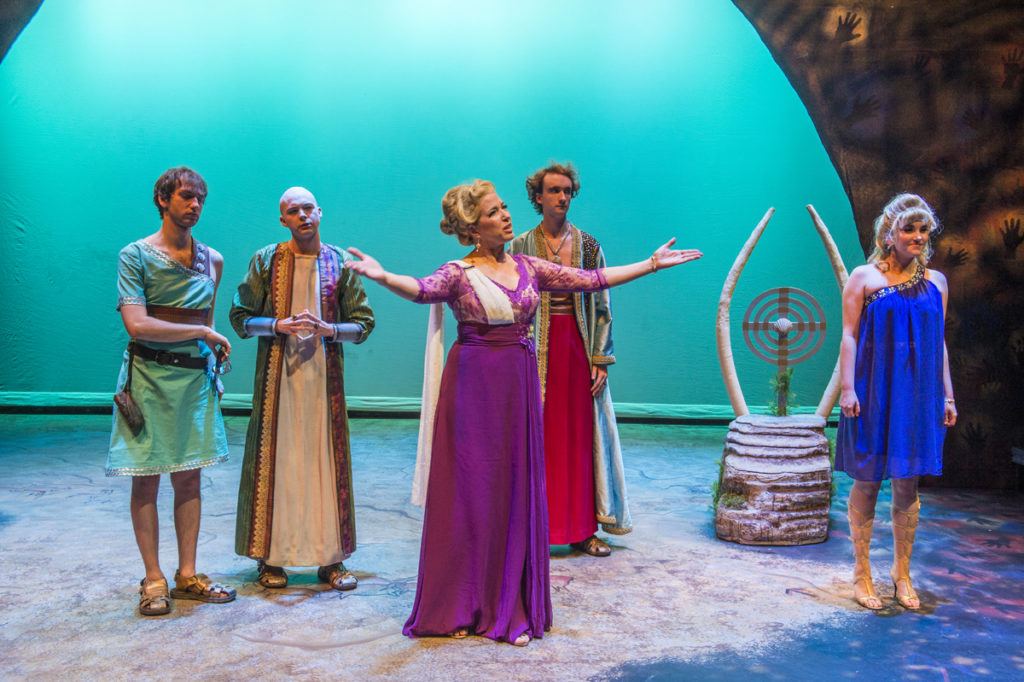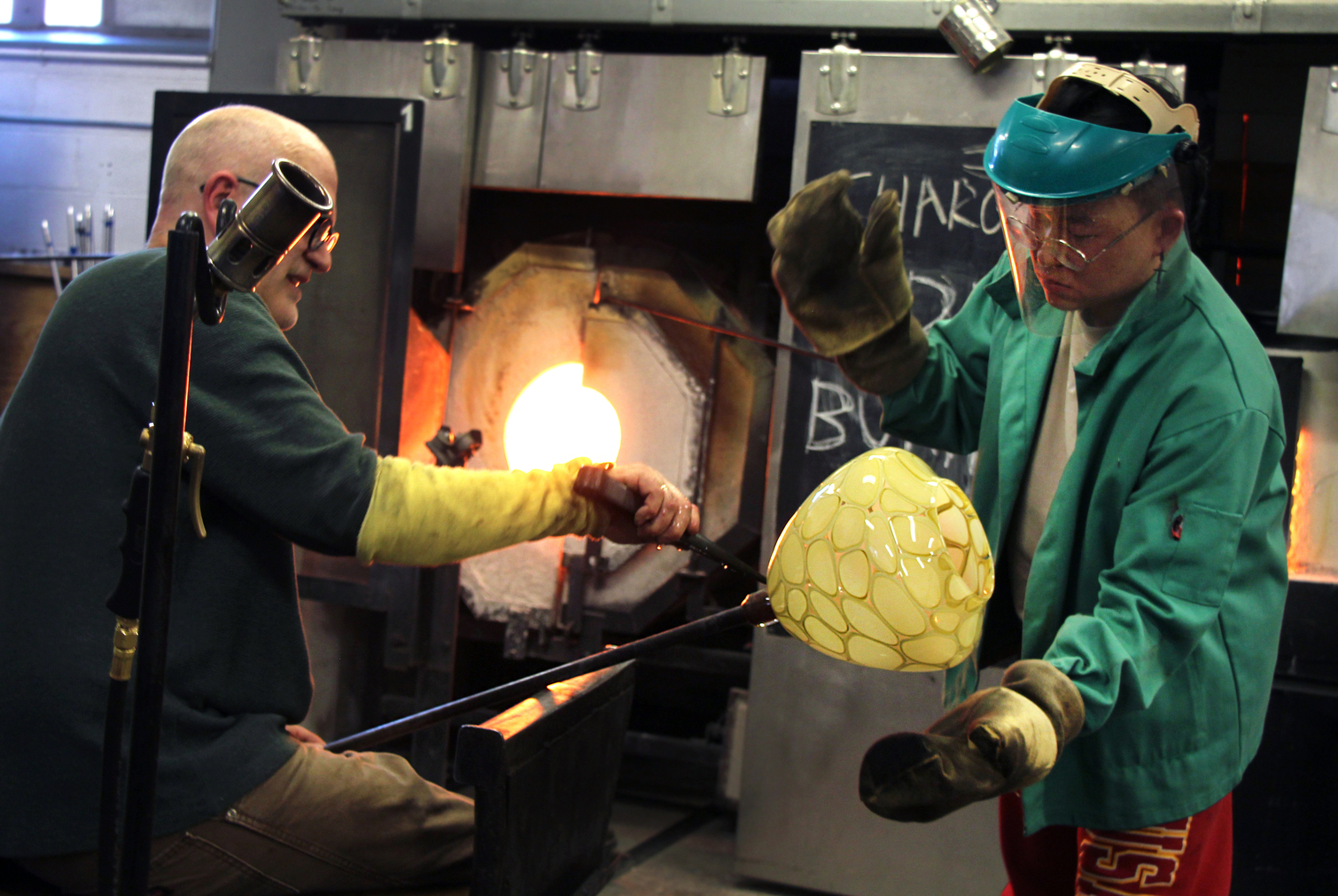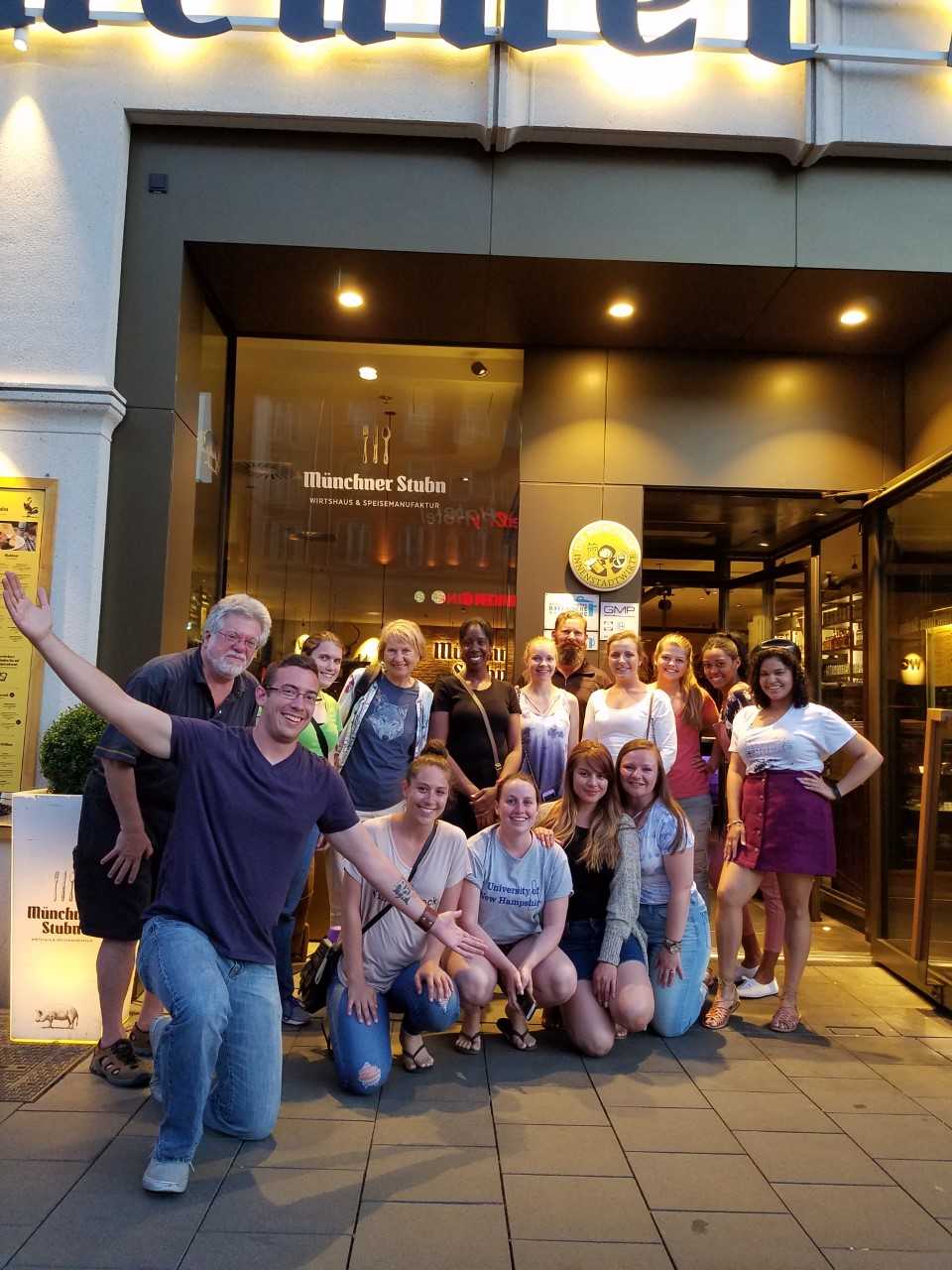
Theater is not always just about entertainment; sometimes the stories share a unique, socially relevant message as well.
This week, two theater graduate degree program students will debut their directing qualifiers with free performances at the Christian H. Moe Laboratory Theater. Sarah Chichester will direct “Danny in the Deep Blue Sea,” a wrenching story of love and fate, while Jennifer Caudell will direct Euripides’ ancient Greek tragedy, “Medea.”
Productions set for March 8
The free productions highlight the long work of the students, while offering a fun experience for the community.
- “Danny and the Deep Blue Sea” set for 2 p.m.
- “Medea” set for 7 p.m.
“Medea” advocates for women’s rights
As a significant milestone in the MFA process, both artists started work on their prospective last summer. For Caudell, the goal is for “Medea” to act as advocacy for women’s rights.
The canonical text focuses on a devoted wife’s desire for vengeance against her unfaithful husband, Jennifer explained. As one of the most popular Greek tragedies throughout the 20th century, this play regained steam during the feminist movement.
“I chose Medea because I have always been drawn to her,” Caudell said. “She is one of the first written examples that we have of women’s rights and the struggle of feminism against an unfair patriarchy. I want the audience to gain a sympathetic understanding and connection with Medea.”
Though written in 431 BC, Caudell worked with creative leisure within the development of the piece.
“I have attempted to set the piece in a modern, timeless space,” Caudell said. “The elements of Greek theatre are still heavily present with a lean toward a modern audience, so today’s spectator will be able to engage with the characters on a more personal level.”
‘Danny in the Deep Blue Sea’ explores trauma, empathy and romance
For Chichester’s premiere production, the goal is to spark socially pertinent conversation. Set in the 1980’s, “Danny in the Deep Blue Sea” chronicles a chance meeting between main characters Danny and Roberta in a Bronx bar. The play explores themes of trauma, empathy and romance, culminating with hope for the future.
“I want the audience to see the challenges people who have mental health issues face when it comes to relationships,” Chichester said. “Throughout the play we see two volatile people make erratic and impulsive choices. I think many people see this play as a love story, but I think this piece is deeper than that.”
After examining the play, Chichester made the decision to keep the setting from when John Patrick Shanley originally wrote it. As both a creative experience and a learning process, this play has taught her new things and expanded her horizons for the future.
“As a director, I find seeing other people’s ideas for who these characters are fascinating,” Chichester said. “Sometimes someone will come up with an idea I really love that I never thought about and vice versa. Those positive connections are my favorite part of the process.”






